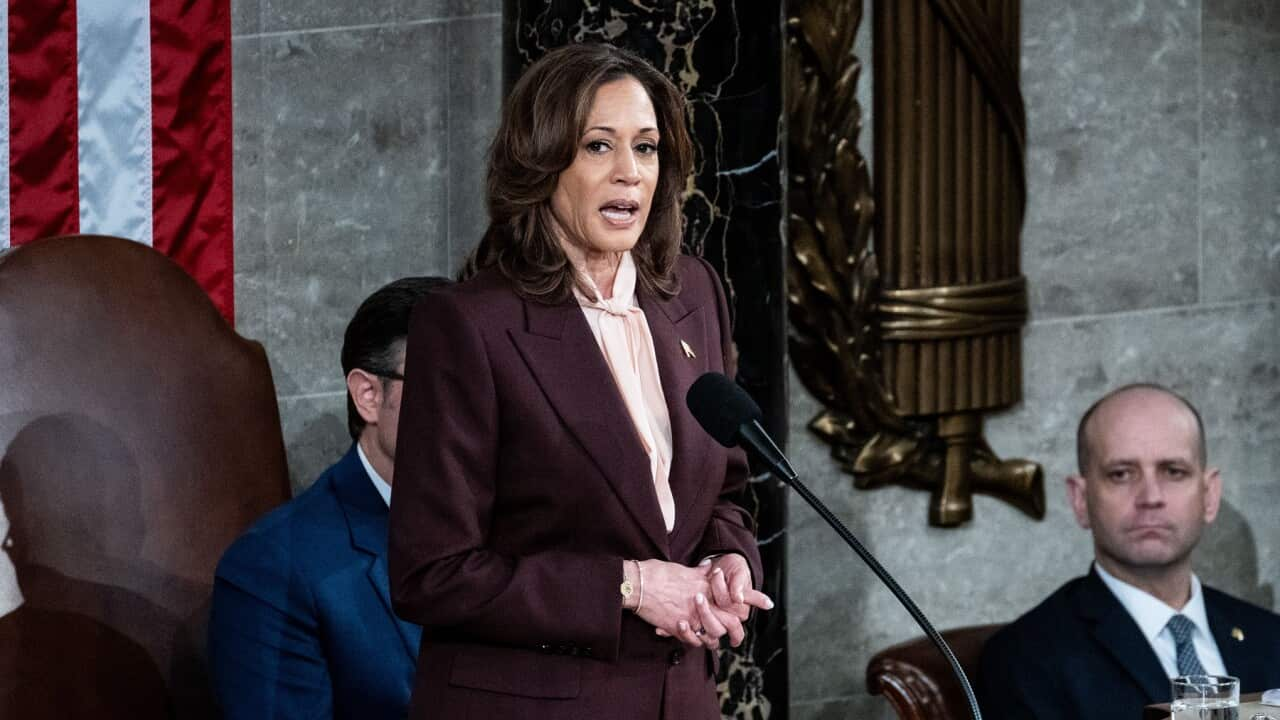TRANSCRIPT
"We will never give up, we will never concede, it doesn't happen. You don't concede when there's theft involved."
In 2020, Donald Trump lost the US election to Joe Biden.
In a post on social media platform X, he announced a rally would be held, claiming the election had been "stolen".
That rally quickly descended into chaos as Trump's supporters violently stormed the US Capitol.
It has since been described as an insurrection by some, and an attempted coup by others.
Now the man they fought for is about to return to power.
“This announcement of the state of the vote by the President of the Senate shall be deemed a sufficient declaration of the persons elected president and vice president of the United States, each for a term beginning on the 20th day of January 2025.”
Outgoing vice President Kamala Harris formally announced Donald Trump’s victory – and her own defeat – in the 2024 presidential election.
The whole process happened swiftly and without unrest - in stark contrast to four years prior.
“Well, today was obviously a very important day and it was about what should be the norm and what the American people should be able to take for granted, which is that one of the most important pillars of our democracy is that there will be a peaceful transfer of power.”
Trump was indicted for his role in the riot in August 2023, but after being elected president last year, prosecutors dropped the case.
“Even though a large number of the participants in the January the 6th storming of Congress have been prosecuted and given jail sentences, Trump himself has completely evaded the legal process. Technically it could be revived in four years time when Trump leaves the presidency but that's very unlikely.”
That was John Hart, a specialist in American government and a member of the Emeritus Faculty at the Australian National University.
He says he believes the riot and its aftermath has also added to what he describes as "extreme polarisation" in U-S politics.
During the riot, police officers were beaten, offices were vandalised and looted, and many politicians hid or were evacuated.
The cost of damage from the siege is estimated to be just under AU$4.5 million and 1,561 people have been charged for their involvement.
Mr Hart says the riot had been a major setback for the rule of law in the US.
“Trump has been talking about granting a pardon to all the convicted participants on the January the sixth event, which would just be reversing completely the notion of accountability of justice, of rule of law in America. So it's a major setback over the last four years. It's all worked to Trump's favour.”
Brendon O'Connor is a professor of U-S politics and foreign relations at the University of Sydney.
He says he believes the biggest impact of the riot was a wider proliferation of election denialism and distrust of established facts.
“You can say whatever you want now in politics, and Donald Trump clearly got away with that. So, I think for me, as much as of storming of the Capitol and the police that were injured that day and the sense of kind of chaos that created and the sense of things being somewhat out of control for a few hours, the broader context is probably the most significant.”
Mr Hart said that, in the current political landscape, it's possible that similar incidents could happen again.
“Back in 2016 when Trump first appeared on the national scene in a political capacity, I would never have dreamt that this would've happened ... nor would most people. Could it happen again? Yes, I guess it could, because the American constitution is a lot weaker than many observers thought in its ability to check and balance power in the system to hold rulers accountable.”
And Mr O'Connor agrees.
“I think a certain degree of civil order has been broken down. And the lack of consequences to Trump's election denialism, and support for the January 6 rioters ... probably is kind of encouraging other politicians to try this on in the future.”













